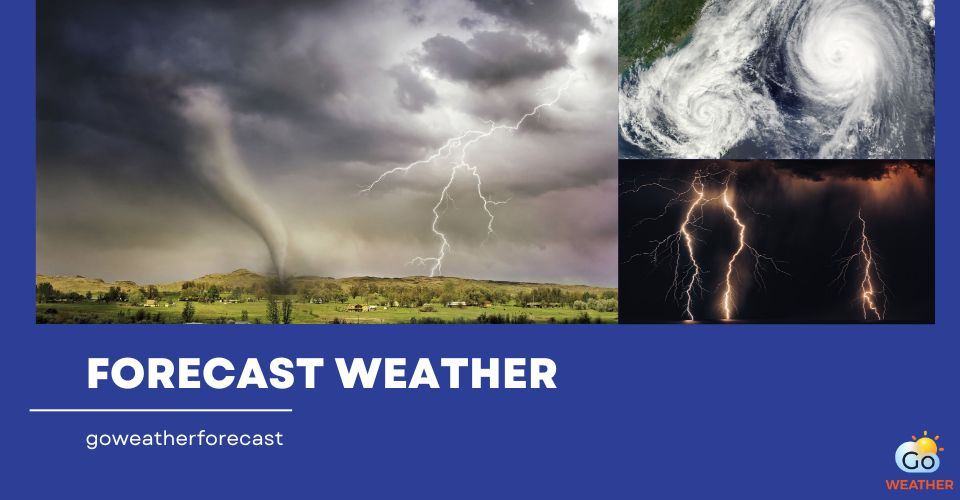Can Birds Predict Weather Accurately? An Ultimate Guide
Do you know that birds predict weather? There is no scientific evidence for how birds can tell about the weather, but we have all noticed birds perching on power lines are a sign of an approaching storm. That’s because low barometric pressure makes it harder to fly. Closely observe what birds react to environmental changes, you might be surprised by what you learn!
.jpg)
Can birds predict bad weather?
Birds and Weather Predicting
Long before the advent of weather forecasters powered by advanced technology, people often observed the behavior of animals and correlated that to the upcoming weather patterns.
For example, if you see birds feed during a storm, the rain will continue for a long time – but if they don’t, then the rain will end quickly.
But are these feathered weather predictions more reliable than a modern weather report?
In fact, most birds predict weather thanks to the Vitali Organ, a special sensory organ in the middle ear that can sense atmospheric pressure changes.
An approaching storm means the faster the atmospheric pressure falls. Birds tend to fly low to the ground in order to relieve discomfort caused by pressure changes in their ears at greater altitudes.
.jpg)
Can birds predict the weather?
Dr. Christopher Heckscher, Associate Professor of Environmental Science & Ecology, carried out a study on Veery migration when he was at the University of Delaware.
The findings show that there is a link between the songbirds and hurricane season.
Each year, Veeries return from South America in late April or early May. That's when Heckcher and his team started experimenting. These birds spend several months nesting, and by August, they fly to South America.
However, if the birds sense an active season, they will shorten their nesting. Scientists are still trying to determine how birds predict weather. But they have some theories.
.jpg)
Birds and weather predicting
They suspect it’s an array of connections related to the general characteristics of the atmosphere that drive the high cumulative cyclone energy and the really active hurricane season.
That cumulative cyclone energy could have a lot to do with cooling seawater along the tropical west coast of South America during the peak of the hurricane season, also known as "la Nina."
How Do Birds Predict Weather?
According to scientists, there are two distinct ways that birds feel weather. The first way is by reading the air pressure, or barometric pressure.
Air pressure is the density of air molecules. Lower barometric pressure means cold fronts are on their way, which is not good for flying.
.jpg)
How does bird predict the weather?
Birds are incredibly sensitive to subtle changes in air pressure. While scientists are yet to determine how they do this, the most common theory is that birds use the inner ear or air sacs connected to their lungs to air pressure.
Birds predict weather by sensing barometric pressure apart; some birds, like golden-winged warblers, can also hear infrasound that is audible to humans.
That means birds can hear a massive thunderstorm that is several days away from approaching.
► Read more: Predict weather with clouds
Common Bird Behavior Related to Weather
People can look at behavioral clues of birders to predict dramatic weather ahead. Below are some of the most common signs:
Perching on power lines
Birds perching on power lines
An abundance of birds perching on power lines may indicate a drop in the barometric pressure.
When the barometric pressure is low, birds have to work harder and burn more energy to fly. Thus, they tend to perch on power lines to conserve energy.
Unusual migration
When the golden-winged warblers hear impending severe storms across the Great Plains, they tend to leave their breeding grounds in Tennessee for a more pleasant weather report in Florida.
The sudden departure of golden-winged warblers can be a sign of an upcoming storm.
.jpg)
Unusual migration of birds
Seagulls coming ashore
Sailors have made many observations of peculiar bird behaviors to predict weather patterns and astrological events. One of the most common ones is that coastal birds tend to come ashore before inclement weather approaches.
This allows the birds to avoid dangerous weather while above the water. And all birds are extremely quiet just before rain.
Spooky silence
.jpg)
Spooky silence of birds may predict weather
If you notice the quiet stillness settling in the air, that could be a sign of an impending storm. Once birds sense severe weather that leads to a somewhat spooky silence, they tend to stop singing and chirping.
Conclusion
Can birds predict weather? While birds may not be able to warn you of tomorrow's high temperatures or if an overnight frost is imminent, they can still be useful and practical meteorological support. However, the advances in technology have helped predict the conditions of the atmosphere at high accuracy levels. We highly check weather online daily to get alerts about weather conditions.


![9 Accurate & FREE Weather Apps for Android/iPhone [Latest List]](https://admin.goweatherforecast.com/images/1733189642.png)
![Which Weather App to Use for Accurate Results? [Android & iOS]](https://admin.goweatherforecast.com/images/1733131425.png)







0 Comments
Leave a Comment
Your email address will not be published. Required fields are marked *